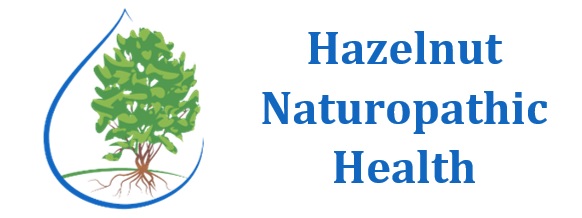
The Truths of Testosterone
The Truths of Testosterone
Hormones have become a hot topic in recent years. These chemical messengers of the body have a wide variety of functions. They play a role in many ways including repair, reproduction, and growth. Blood sugar, blood pressure, body temperature, sleep, etc., all depend on hormone balance to work properly.
Testosterone, otherwise known as T, is one such steroid hormone present in men, and women to a lesser extent. Several studies have shown a decline in testosterone levels over the last few decades. One larger study looking at Israeli men found average T levels from 2006 to 2019 had declined by over 10% across nearly every age group.
There are many reasons why low T is becoming more common. People everywhere are leading more sedentary lifestyles with a higher average weight than past generations. Increasingly, toxins are more prevalent around the world, including endocrine-disrupting chemicals in plastics, detergents, and other materials. Long-term stress, mental health concerns, and even diabetes are also associated with low T. The question is, as a male, should you be worried?
Testosterone Through the Years
Hormones, like most things, have a natural ebb and flow through life. Testosterone is the main male hormone and is responsible for developing male sex organs in utero. It also makes puberty in young men possible. Puberty causes growth spurts, facial hair growth, voice changes, skeletal muscle growth, sexual organ development, etc. Testosterone also raises red blood cell production, carrying more oxygen throughout the body.
During middle age, things begin to shift. Testosterone levels tend to drop due to aging. Men can make babies throughout life unlike women, but at age 40 a slow decline in fertility begins. A man’s total testosterone levels in the blood naturally decline by 1 to 2% annually at age 30. Generally, men older than 70 years have roughly a 33 - 50% reduction in testosterone as compared to 20-year-old men. Because of this, men tend to experience a decrease in testicular size, sex drive, bone density, muscle mass, red blood cells, and an increase in body fat.
Do I Have Enough T?
Low levels of testosterone can occur at different ages for a wide variety of reasons. With modern media, more men than ever are concerned about their hormone levels. Besides age, certain medications, cancer treatment, inflammation in the testicles, small/immature testicles, or genetic disorders like Klinefelter syndrome also affect T levels. Low T also puts men at higher risk of developing heart disease, type 2 diabetes, obesity, and depression.
If you suspect you may have low T, possible symptoms include:
- Low energy
- Irritability
- Low sex drive
- Reduced bone density and muscle mass
- Impaired concentration
- Poor mood
- Fertility problems
- Increased weight
- Anemia
High testosterone is also possible, though not as common. It can cause symptoms like acne, aggressive behavior, high blood pressure, high sex drive, inability to sleep, mood swings, urinary changes, etc. See a doctor right away if you experience any of these symptoms.
Support Testosterone Naturally
So, you suspect you may have a low T. What is your next step? There are several natural ways you can optimize your testosterone levels while waiting to get into your health practitioner.
Exercise. One of the most important things that can be done to raise testosterone is to exercise. Walking more steps during the day or doing aerobic exercise had a better effect than dietary changes alone. Weight lifting may be especially supportive of healthy T levels. The positive effects of exercise on hormones can last for hours after working out.
Dietary Support. Diet also has a large effect on overall health. Eating a diet rich in whole foods loaded with vegetables, fruits, and a moderate amount of healthy fats and proteins is key. Eating fewer processed foods such as bread, pastries, desserts, and cooking at home are correlated with higher T levels. Additionally, short-term fasting, such as intermittent fasting, has been shown to increase T levels.
Natural Supplements. There are several supplements which may be helpful. Fenugreek (Trigonella foenum-graecum) supplemented daily was found to raise T levels. Ashwagandha (Withania somnifera) also increased T levels. Researchers used a daily 600 mg dose for each respective herb. Other herbs that may be useful include tribulus (Tribulus terrestris), Asian ginseng (Panax ginseng), and astragalus (Astragalus membranaceus). More studies on these herbs are needed before they can be recommended.
Last But Not Least…
It’s hard to go a week without a few commercials on the television, radio, or computer mentioning men’s health and testosterone. As a result, the marketplace has been flooded with products claiming to support men’s health. These products may be helpful, but the quality of ingredients, safety, and effectiveness may be suspect. The Food and Drug Administration doesn’t thoroughly evaluate many natural products before they hit the market.
If you are worried about your testosterone levels, go see your doctor. There are many therapies available that are regarded as safe and effective. If you are seeking more natural support, consider chatting with a holistic health practitioner such as a naturopathic doctor or acupuncturist. You can schedule a Discovery Visit with either Dr. Amanda Blandford or Rachael Tax, L.Ac to find out more. As always, chat with your doctor before adding supplements or lifestyle changes.
Resources:
- Balasubramanian, Adithya, et al. 2018. "Testosterone Imposters: An Analysis of Popular Online Testosterone Boosting Supplements." The Journal of Sexual Medicine; 16(2): 203-212. doi:10.1016/j.jsxm.2018.12.008
- Chodick G., Epstein S., Shalev V. 2020. "Secular Trends in Testosterone- Findings from a Large State-mandate Care Provider." Reprod Biol Endocrinol; 18:19.
- Cleveland Clinic. 2022. "Why are Testosterone Levels Decreasing?" https://health.clevelandclinic.org/declining-testosterone-levels
- Hu, Tzu-Yu, et al. 2018. "Testosterone-Associated Dietary Pattern Predicts Low Testosterone Levels and Hypogonadism." Nutrients; 10,11: 1786. doi:10.3390/nu10111786
- Hooper, D. R., Kraemer, W. J., Focht, B. C., Volek, J. S., DuPont, W. H., Caldwell, L. K., & Maresh, C. M. 2017. "Endocrinological Roles for Testosterone in Resistance Exercise

Leave a Comment
(0 Comments)